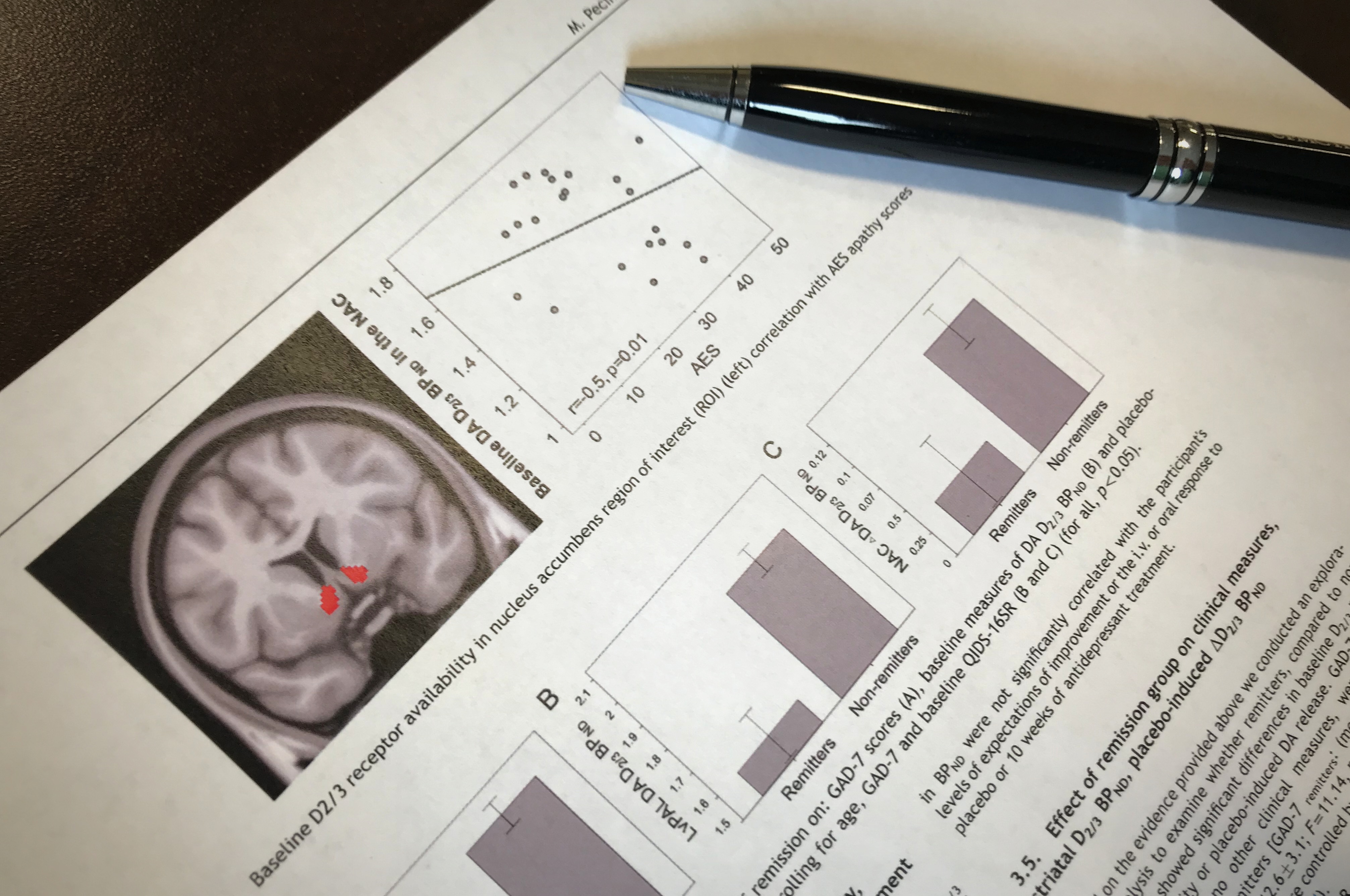Dr. Marta Peciña Reports in European Neuropsychopharmacology that High D2/3 Receptor Availability in the Ventral Striatum of Patients with Depression Is Associated With Comorbid Anxiety Symptoms and Lack of Response to Antidepressants

Dopamine (DA) neurotransmission within the brain's reward circuit has been implicated in the pathophysiology of depression, as well as mechanisms of treatment response. Still, a direct relationship between measures of DA neurotransmission and reward-related deficits in patients with depression has not been demonstrated. In a study led by Marta Peciña, MD, PhD, Assistant Professor of Psychiatry, investigators used positron emission tomography and the DA D2/3 receptor-selective radiotracer [11C]-raclopride to measure striatal DA receptors in 23 unmedicated patients with major depressive disorder (MDD) and 16 healthy controls. Measures of striatal DA receptors availability were first compared between the two groups and then related to measures of depression severity, anxiety, motivational and consummatory anhedonia, and the response to placebo and SSRI treatment.
Compared to controls, patients with MDD had greater D2/3 receptor availability in several striatal regions, possibly revealing an upregulation of the receptors in the context of lower endogenous striatal DA tone. In the depressed group, D2/3 receptor availability in the caudal portion of the ventral striatum correlated with higher anxiety symptoms, whereas D2/3 receptor availability in the rostral area of the ventral striatum correlated negatively with the severity of motivational anhedonia. Finally, MDD non-remitters showed greater baseline anxiety and greater striatal D2/3 receptor availability.
These results suggest that individual differences in measures of DA receptor availability in the striatum are linked to the biology of depression and the response to antidepressants. This information potentially could be used to stratify patients who might initially benefit from second-line treatment options or augmentation pharmacotherapy targeting DA mechanisms. Personalizing treatment decisions could reduce the lack of response to first-line antidepressant treatments and improve outcomes for patients with MDD.
Striatal Dopamine D2/3 Receptor-mediated Neurotransmission in Major Depression: Implications for Anhedonia, Anxiety and Treatment Response
Peciña M, Magdalena Sikora M, Avery ET, Heffernan J, Peciña S, Mickey BJ, Zubieta J
European Neuropsychopharmacology, Published online, 2017, doi.org/10.1016/j.euroneuro.2017.08.427
